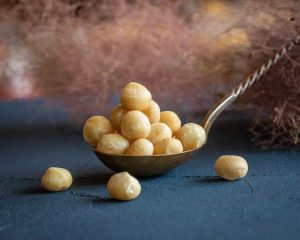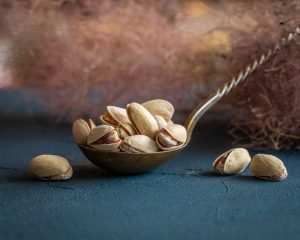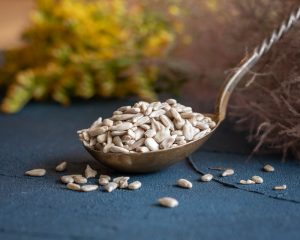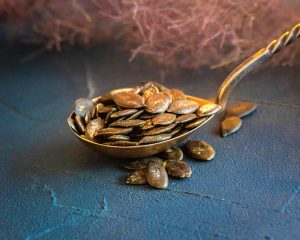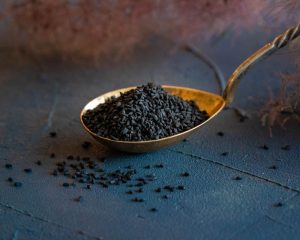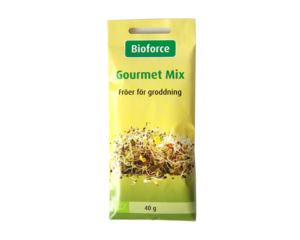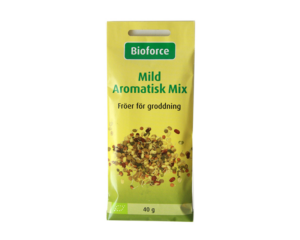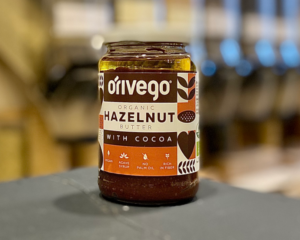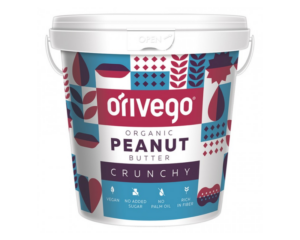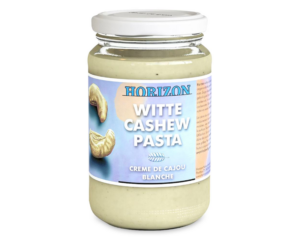Organic pecans
From 3.44€
There is probably no pair of nuts easier to confuse than pecans and walnuts. First of all, they belong to different families and have different flavour profiles; pecans are sweeter and fattier, while walnuts have a stronger flavour. In appearance, pecans are generally more oval and reddish-brown, while walnuts are rounder and have a lighter beige shell. The culinary uses of the two nuts are also different: pecans are often used in sweet dishes such as cakes, while walnuts are commonly used in savoury dishes such as salads and pesto. Finally, their nutritional profiles are different, as pecans are usually higher in fat and calories, while walnuts are higher in omega-3 fatty acids.
Pecans are also called pecans. Their rich flavour and natural sweetness make them a delicious and filling snack.
According to Walnuts.lt, the health benefits of pecans include:
– they are strong antioxidants, inhibiting many harmful substances that cause cancer risk, suppress hunger and stimulate metabolism, so pecans are recommended for those who want to lose weight;
– reduce high cholesterol levels;
– reduce the risk of gallstones;
– slow age-related muscle degeneration;
– reduce the risk of heart disease;
– excellent sources of vitamin B1, the lack of which causes fatigue, muscle weakness, headaches, memory loss, numbness, tingling, loss of appetite and heart failure;
– excellent sources of zinc, necessary for human growth and sexual maturation, also stimulates the prostate gland, contributes to faster wound healing;
– contain high levels of omega-6 fatty acids (up to 2 times more than walnuts), which are essential for the functioning of brain membranes and brain function, normal skin function, body resistance, blood clotting;
– beneficial for hair, as they reduce hair loss and promote hair growth.
Vitamin A – 56 IU
Vitamin B1 – (57%) 0,66 mg
Vitamin B2 – (11%) 0.13 mg
Vitamin B3 – (8%) 1,167 mg
Vitamin B5 – (17%) 0,863 mg
Vitamin B6 – (16%) 0.21 mg
Vitamin B9 – (6%) 22 μg
Vitamin C – (1%) 1.1 mg
Vitamin E – (9%) 1.4 mg
Vitamin K – (3%) 3,5 μg
Calcium – (7%) 70 mg
Iron – (19%) 2,53 mg
Magnesium – (34%) 121 mg
Manganese – (214%) 4,5 mg
Phosphorus – (40%) 277 mg
Potassium – (9%) 410 mg
Zinc – (48%) 4,53 mg
NB!
The information provided here should not be interpreted as a recommendation for treatment or other types of health problems.
We recommend that you make personal health decisions after evaluating various sources of information.
100% Organic PECANS
Energy value 2866 kJ / 695 kcal
Fats 67,6 g
- of which saturated fatty acids 6,3 g
Carbohydrates 5,2 g
- of which sugars 4,4 g
Dietary fibre 10,1 g
Protein 11,5 g
Salt 0,01 g
Store in a cool, dry place, away from direct sunlight. Recommended storage temperature 0°C to 2°C


